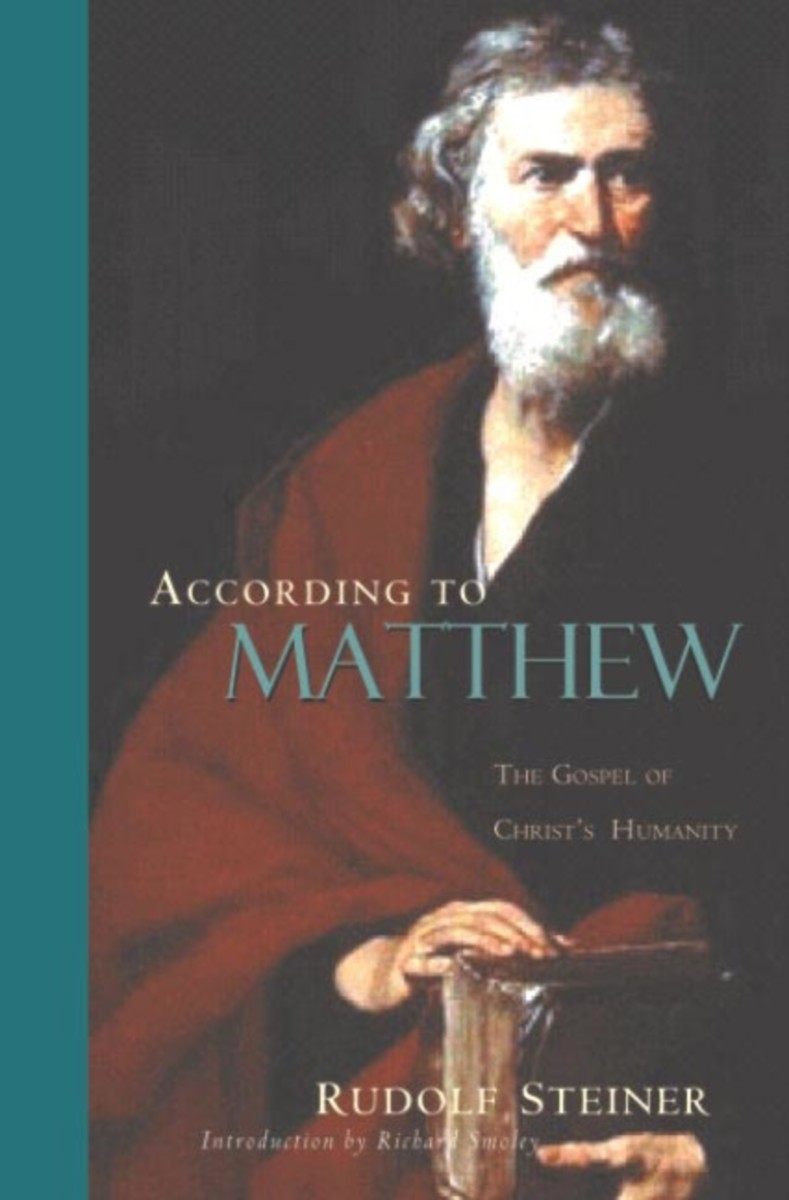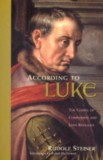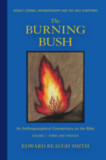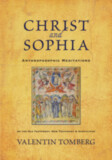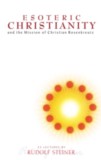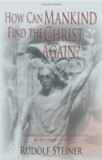According to Matthew
The Gospel of Christ’s Humanity (CW 123)
- Publisher
SteinerBooks - Published
1st February 2002 - ISBN 9780880105040
- Language English
- Pages 240 pp.
- Size 5.5" x 8.5"
12 lectures, Berne, September 1-12, 1910 (CW 123)
“If we read [Steiner’s] lectures with an open and attentive inner eye, we may be able to see the Christ mystery, not as a collection of dogmas or facts, but as a spiritual impulse that stretches far beyond the limits of Christ’s own time and even of the lifespan of Christianity itself. We may even catch a glimpse of the high powers that govern the life of civilizations and of the great entity known as the human race.” — Richard Smoley (from the introduction)
For centuries people have been baffled by the varying accounts of Christ’s life as presented in the four Gospels and have struggled to reconcile them. In these profound and stimulating lectures, Steiner addresses this conundrum. He shows how each of the Gospels presents a different lens onto Christ’s life and message.
Here Steiner reveals the Gospel of Matthew as the one that emphasizes Christ’s humanity. But he does not stop there; his visionary perspective traces Christ’s life and message to spiritual impulses that go back centuries, even millennia, to the legendary civilization of Atlantis, to the mysterious Zarathustra, and to the Jewish sect known as the Essenes.
An introduction by Richard Smoley, author of Inner Christianity, puts Steiner’s vision into perspective for modern readers. Once you have experienced Steiner’s powerful exploration of Matthew, you will never see the Gospels in the same way again.
According to Matthew is a translation from German of Das Matthaeus-evangelium. A previous translation was titled The Gospel of St. Matthew (GA 123).
Rudolf Steiner
Rudolf Steiner (b. Rudolf Joseph Lorenz Steiner, 1861–1925) was born in the small village of Kraljevec, Austro-Hungarian Empire (now in Croatia), where he grew up. As a young man, he lived in Weimar and Berlin, where he became a well-published scientific, literary, and philosophical scholar, known especially for his work with Goethe’s scientific writings. Steiner termed his spiritual philosophy anthroposophy, meaning “wisdom of the human being.” As an exceptionally developed seer, he based his work on direct knowledge and perception of spiritual dimensions. He initiated a modern, universal “spiritual science” that is accessible to anyone willing to exercise clear and unbiased thinking. From his spiritual investigations, Steiner provided suggestions for the renewal of numerous activities, including education (general and for special needs), agriculture, medicine, economics, architecture, science, philosophy, Christianity, and the arts. There are currently thousands of schools, clinics, farms, and initiatives in other fields that involve practical work based on the principles Steiner developed. His many published works feature his research into the spiritual nature of human beings, the evolution of the world and humanity, and methods for personal development. He wrote some thirty books and delivered more than six thousand lectures throughout much of Europe. In 1924, Steiner founded the General Anthroposophical Society, which today has branches around the world.


